If you can believe it, 2021 is already halfway over. That means you’ve burned your way through all the books from the first half of the year (right?) and are finding yourself hungry for more. Never fear, dear Reader. Lit Hub is here for you. For our second Big Preview of the year, we’ve picked out the 222 books being published between July and December that we’re most excited about. Some of these we’ve already read, and some we haven’t (yet), but we think you should probably know about all of them. (And probably a bunch of others that we missed, but hey—we had to stop somewhere.) So without any further ado, behold Literary Hub’s most anticipated books for the second half of the year below. See you in 2022.

Jan-Werner Müller, Democracy Rules
Farrar, Straus and Giroux, July 6
Political philosopher Jan-Werner Müller previously authored What is Populism?, a look at the ways that populism develops among a population and how contemporary society can navigate its effects. Now, with Democracy Rules, he aims at a deeper understanding of democracy by examining the role uncertainty plays in a democratic society. –from Lit Hub’s Summer Nonfiction Preview

Ewa Majewska, Feminist Antifascism: Counterpublics of the Common
Verso, July 6
Polish philosopher Ewa Majewska looks at the ways that feminist spaces resist the tide of fascism, in particular through the stories of labor movements and other justice movements in Poland and South America. The book also challenges the Western lens that dominates popular analyses of leftist politics in the US, looking beyond the West for answers to pressing political questions. –from Lit Hub’s Summer Nonfiction Preview
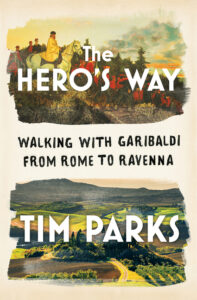
Tim Parks, The Hero’s Way: Walking with Garibaldi from Rome to Ravenna
Norton, July 6
Alarmingly prolific writer/translator/critic Tim Parks is back at it with an immersive travelogue tracing Giuseppe Garibaldi’s bold (some would say foolhardy) 1849 journey by foot across the Italian Apennines. Not only did the father of Italian nationhood lead his garibaldini in their retreat from the French army, he did so with his pregnant wife Anita. Parks, himself joined by his partner, Eleonora, recreates the historic journey (without the backdrop of war), keeping one eye on resonances of the past and the other on all the rich, local idiosyncrasies of contemporary Italian life. Every travelogue should begin from a conceit like this. –from Lit Hub’s Summer Nonfiction Preview
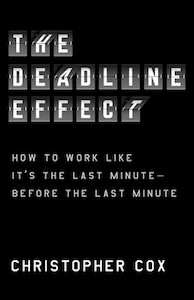
Christopher Cox, The Deadline Effect: How to Work Like It’s the Last Minute—Before the Last Minute
Avid Reader Press, July 6
Among the many things the last year has revealed is how strange the flow of time can be, particularly when formerly discrete parts of our lives—work and home—get blended into one, long stressful continuum. In The Deadline Effect, writer and magazine editor Christopher Cox has set out to better understand the way we respond to deadlines, how they can at once be stressful and clarifying experiences, and if there’s a way to trick ourselves into the latter without any of the former. –from Lit Hub’s Summer Nonfiction Preview
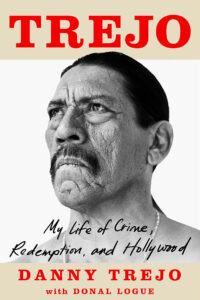
Danny Trejo and Donal Logue, Trejo: My Life of Crime, Redemption, and Hollywood
Atria, July 6
Before he found fame as “Hollywood’s favorite bad guy with a heart of gold” in his forties, Danny Trejo struggled with childhood abuse and heroin addiction, and spent years incarcerated. Trejo: My Life of Crime, Redemption, and Hollywood details his journey through it all. If anyone has earned the right to a Hollywood memoir, it’s Danny Trejo. To quote Bookmarks editor Dan Sheehan, “The man has lived a life.” –from Lit Hub’s Summer Nonfiction Preview

Beth Morgan, A Touch of Jen
Little, Brown, July 13
Um, holy shit. Or maybe it’s better to say: unholy shit. Whether you’re on a post-vaccine rampage or not, this novel will be the most fun you’ll have this summer: a millennial comedy of manners that, just at the point where these things usually fizzle and disappoint, takes A Turn and morphs into a weird horror novel. It’s like if Halle Butler fell asleep watching The Host (the Bong Joon-ho movie, not the Stephenie Meyer adaptation) and this is what she dreamed. I’m realizing that . . . sounds bad, but I don’t want to tell you any more, so look, just trust me on this one.
–Emily Temple (in Lit Hub’s Summer Fiction Preview)
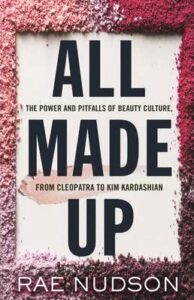
Rae Nudson, All Made Up: The Power and Pitfalls of Beauty Culture, from Cleopatra to Kim Kardashian
Beacon Press, July 13
Makeup has too often been dismissed as frivolous (read: feminine), though of course its political, economic, and cultural impact is enormous. In All Made Up, Rae Nudson considers the multifaceted power of makeup through the stories of Cleopatra, Marsha P. Johnson, and more. –from Lit Hub’s Summer Nonfiction Preview
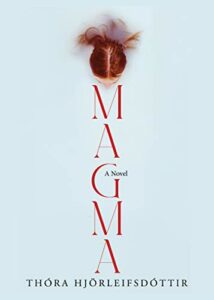
Thora Hjorleifsdottir, tr. Meg Matich, Magma
Grove, July 13
The dictionary defines magma as “extremely hot liquid located under the Earth’s surface.” It’s a fitting description for a book about the nuances—the small gestures, the big silences—of a relationship. This novel follows Lilja, a young woman dangerously in love. After all, he quotes dead philosophers and cooks vegetarian meals. (Who among us has not been Lilja?! It’s the relatability that tinges this novel with something sinister.) She plummets further into his life, determined to be good at love, becoming completely subsumed in the process. In beautifully spare prose, Thora Hjorleifsdottir maps their story: the topography of infatuation, the subtle shifts just below the surface, and the seismic ruptures of self. Magma is a powerful excavation of what can go wrong when you love another. –Katie Yee (in Lit Hub’s Summer Fiction Preview)

Kathryn Kolbert and Julie F. Kay, Controlling Women: What We Must Do Now to Save Reproductive Freedom
Hachette Books, July 13
Kathryn Kolbert and Julie F. Kay, lawyers and advocates for abortion rights, put the experiences of women and health workers at the center of this account of reproductive justice in America. Their observations are presented here alongside their writing on abortion as a human rights issue and legal strategies for protecting people’s ability to obtain it. –from Lit Hub’s Summer Nonfiction Preview
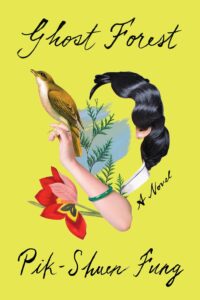
Pik-Shuen Fung, Ghost Forest
One World, July 13
Several summers ago, I read Zinzi Clemmons’ What We Lose in a single afternoon, and reading Pik-Shuen Fung’s debut felt like a welcome replica of that day. Grief is complicated enough, but the protagonist is grieving her “astronaut” father (he stayed in Hong Kong to work while his family immigrated to Vancouver) who was often critical of and confused by his westernized daughter. Composed of vignettes—some of which span generations, some of which made me laugh out loud, many of which gave me Very Strong Feels—Ghost Forest is the tender/funny book we can all appreciate after a hellish year. –Eliza Smith (in Lit Hub’s Summer Fiction Preview)
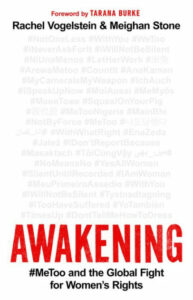
Rachel B. Vogelstein and Meighan Stone, Awakening: #MeToo and the Global Fight for Women’s Rights
PublicAffairs, July 13
Several years after the #MeToo movement inspired an outpouring of women’s stories, and a series of collective reckonings in fields long dominated by men, Awakening takes stock of the movement in Brazil, China, Egypt, Nigeria, Pakistan, Sweden, and Tunisia. Tarana Burke, who founded the movement, authored the foreword for this recent history of the fight for gender equality. –from Lit Hub’s Summer Nonfiction Preview
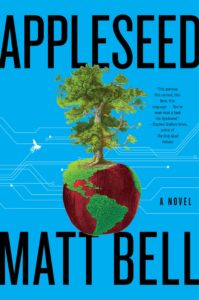
Matt Bell, Appleseed
Custom House, July 13
Do you like apples? Well here’s an epic-but-intimate hybrid of historical fiction, fairy tale, and cli-fi thriller that spans over a thousand years and asks disquieting questions about manifest destiny, climate change, civic duty, and human stewardship of the natural world. How do you like them apples? Over the course of 600 pages, we’re transported from the budding apple orchards of 18th-century Ohio to the frozen tundra of post-snowpocalypse America. Bell’s terrifying yet deeply humane novel of ideas is both an awesome work of imagination and a stirring ecological call-to-arms—a reminder of what the best genre-bending books can achieve. –Dan Sheehan (in Lit Hub’s Summer Fiction Preview)
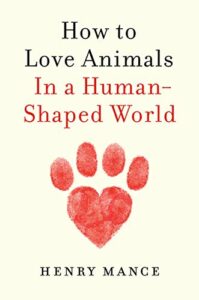
Henry Mance, How to Love Animals: In a Human-Shaped World
Viking, July 13
In a world where sustainable habits are a necessity and conservation more important than ever, Henry Mance asks how humans can reform their relationship to animals, with input from activists, politicians, and those working in the food industry. Mance investigates how this relationship manifests in a number of human practices, including hunting, the creation of zoos, and our interactions with undeveloped spaces, building a clear call for change in the way we relate to the natural world. –from Lit Hub’s Summer Nonfiction Preview
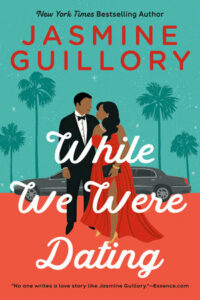
Jasmine Guillory, While We Were Dating
Berkley, July 13
Jasmine Guillory has established a track record of writing swoon-worthy contemporary romance that spotlights people of color; her endearing heroes and heroines grapple with race and racial identity in a way that feels true-to-life rather than ABC after-school special. While We Were Dating centers on Ben Stephens, a driven advertising exec, and Anna Gardiner, an in-demand movie star. (Some readers may recognize Ben as Theo’s brother from The Wedding Party.) Against the glittering backdrop of Los Angeles, Ben and Anna find themselves falling for each other. Their courtship is the stuff of classic rom-coms, with fake dating schemes, miscommunication, and delightful banter. Once again, Guillory offers a charming romance grounded in reality. There are also frank discussions of mental health issues and attending therapy. –Vanessa Willoughby (in Lit Hub’s Summer Fiction Preview)

Sarah Everts, The Joy of Sweat: The Strange Science of Perspiration
Norton, July 13
Despite its ubiquity—and biological utility!—there remains a taboo around sweat. The Joy of Sweat considers sweat not only in a biological context (why is sweat salty?), but in a historical one (how did antiperspirant become a multi-billion dollar industry?). After all, the only way to fight a taboo is with cold (or hot), hard facts. –from Lit Hub’s Summer Nonfiction Preview

William Gardner Smith, The Stone Face
NYRB, July 13
William Gardner Smith started writing The Stone Face in 1961 while living in France, at a time when ongoing tensions over the Algerian War meant that anti-Arab racism and violence suffused every part of daily life. The book, based on his firsthand observations, follows a young man who, like several other Black writers of the era, seeks refuge from the racism of Jim Crow America by moving to Paris; once there, as he observes the treatment of Arabs in his midst, he begins to question his own complicity in an anti-Arab society. A complex exploration of power and justice, the book—which also includes one of the first published accounts of the Paris massacre of 1961—was first printed in 1963 and is being reissued this summer from NYRB, not a moment too soon. –Corinne Segal (in Lit Hub’s Summer Fiction Preview)
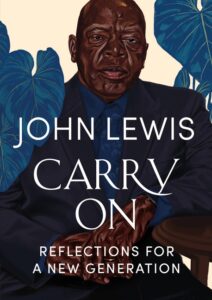
John Lewis, Carry On: Reflections for a New Generation
Grand Central Publishing, July 13
Congressman John Lewis, who died in July of 2020, was a proponent of “good, necessary trouble.” In this collection from the late activist and politician, Lewis offers timeless advice for present and future generations. Carry On, the result of conversations with his editor at Grand Central, Gretchen Young, immortalizes the wisdom of a master orator and visionary. –from Lit Hub’s Summer Nonfiction Preview

Richard Zenith, Pessoa: A Biography
Liveright, July 13
How to write a biography of a writer who created multiple personas and sent them out into the world, a cohort of heteronyms refracting attention away from the man himself and his enigmatic, prolific, and truly unique mind? It’s not hard to imagine that biographer Richard Zenith (that name!) is one more of Fernando Pessoa characters sent forward in time to set the poet’s (numerous) life stories against the political upheavals of early 20th-century Europe. Who can say? –from Lit Hub’s Summer Nonfiction Preview

Vanessa M. Holden, Surviving Southampton: African American Women and Resistance in Nat Turner’s Community
University of Illinois Press, July 13
Vanessa M. Holden’s Surviving Southampton aims to shed light on the local community around the 1831 rebellion led by Nat Turner. This scholarly investigation gives a voice to the women and children of the Southampton community, showcasing how the resistance of the enslaved created a blueprint for resilience and future survival. –from Lit Hub’s Summer Nonfiction Preview
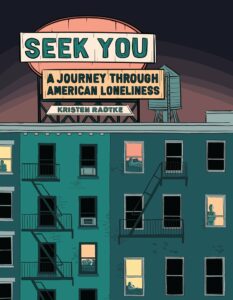
Kristen Radtke, Seek You: A Journey Through American Loneliness
Pantheon Graphic Library, July 13
It has been one of the loneliest years in collective human history. In many ways, the illusions of intimacy provided us by digital convenience have rendered the physical separations of pandemic life that much harder. It’s difficult to think of anyone better suited to investigate this melancholy paradox than Kristen Radtke, whose graphic narratives convey—often with dizzying potency—the full range of how human solitude can manifest. Seek You a “meditation on isolation and longing, both as individuals and as a society” is the perfect framework for her mode of visual and narrative exploration. –from Lit Hub’s Summer Nonfiction Preview
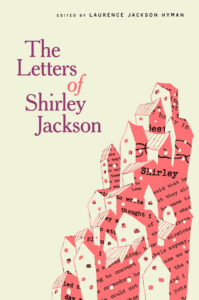
Shirley Jackson, Laurence Jackson Hyman (ed.), Bernice M. Murphy (cont.), The Letters of Shirley Jackson
Random House, July 13
Shirley Jackson’s son Laurence Jackson Hyman edited this collection of never-before-published letters, written over more than 30 years, which give new details on Jackson’s life and writing (also, it includes some of her drawings!). –from Lit Hub’s Summer Nonfiction Preview
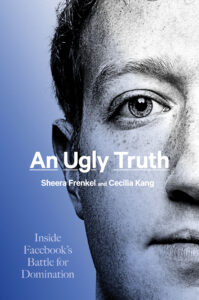
Sheera Frenkel and Cecilia Kang, An Ugly Truth: Inside Facebook’s Battle for Domination
Harper, July 13
At this point it’s taken for granted that Facebook is both a bad experience for users (who surrender huge amounts of data to a private corporation for the privilege of arguing with their weird libertarian uncle) and a bad experience for the fragile experiment that is western democracy. So how did that happen? Sheera Frenkel and Cecilia Kang dig deep into the last five years of the world’s largest social network to reveal bewildering patterns of toxic factionalism, corporate cynicism, and naïve hubris at the very top. At this point, is anyone really in charge? –from Lit Hub’s Summer Nonfiction Preview
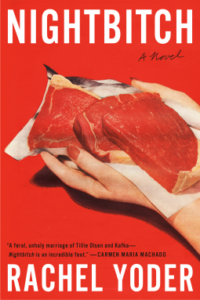
Rachel Yoder, Nightbitch
Doubleday, July 20
I inhaled this delicious bloody feast of a novel, in which an overwhelmed mother begins—or maybe only thinks she begins—to turn into a dog at night. She calls herself . . . Nightbitch. Of course she does. I won’t give too much away here, but yes, she poops on someone else’s lawn. Ultimately, the novel not only manages to be a convincing portrait of modern motherhood, with all the joy and mindfuckery that implies, but also toes the line between clever metaphor and transgressive fantasy, making a convincing claim for both. –ET (in Lit Hub’s Summer Fiction Preview)
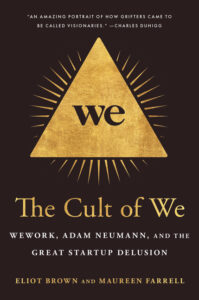
Eliot Brown and Maureen Farrell, The Cult of We: WeWork, Adam Neumann, and the Great Startup Delusion
Crown, July 20
It’s hard to believe the guy who sublet desks to freelancers once thought he’d become the world’s first trillionaire. But that’s the kind of deep and delusional thinking that blessed the world Adam Neumann, an outsized Silicon Valley villain who seemed part cult leader, part used car salesman—hence the title of this deeply reported inside look at gig economy opportunism run amok. –from Lit Hub’s Summer Nonfiction Preview

Katie Kitamura, Intimacies
Riverhead, July 20
Katie Kitamura has a knack for creating tension even when nothing, it seems, is going on—a particular magic trick, especially in such precise, even quiet prose. In the novel, a woman who has recently moved to The Hague to work as an interpreter at the international court is faced with an unsettling trial, a destabilizing love affair, and a disquieting connection to an act of violence—when all she is after is a sense of security and home. The result is morally complex, even philosophical, emotionally affecting, and clear as cold water. It sneaks up on you, page by page; by the end I wanted to jump right back in. –ET (in Lit Hub’s Summer Fiction Preview)

Nicola Twilley and Geoff Manaugh, Until Proven Safe: The History and Future of Quarantine
MCD, July 20
Early during the Covid-19 pandemic we were reminded far and wide of the etymology of quarantine (Italian ships held at port for 40 days to be cleared of plague), a grim kind of isolation that many of us would come to know far too well in the year that followed. But as Geoff Manaugh and Nicola Twilley reveal in Until Proven Safe, this kind of segregation is nothing new for the human race, which has always turned to quarantine in the face of new and unknown pestilence. And as the 21st-century brings new, weird threats (labs accidents! space plagues!) we have to be as vigilant as ever about protecting the herd. –from Lit Hub’s Summer Nonfiction Preview
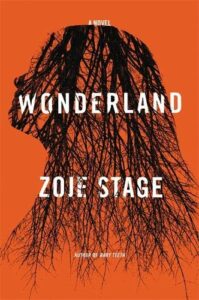
Zoje Stage, Wonderland
Mulholland Books, July 20
Stage’s chilling follow-up to Baby Teeth (2018), now in paperback, takes on the topics of parenthood, domesticity, and the natural world. Orla Moreau, 41, used to be a ballet dancer in New York. However, the time has come to hang up her pointe shoes and retire. Orla and her husband, 38-year-old painter Shaw Bennett, and their two young children move to a farmhouse deep in the Adirondacks. Soon thereafter, their dreams of quiet countryside living become unrecognizable. Who—or what—is preying on the family? Stage’s novel elevates familiar horror tropes (isolation in the wilderness; haunted houses; the terror of the sublime), culminating in an unsettling portrait of a family in crisis. –VW (in Lit Hub’s Summer Fiction Preview)
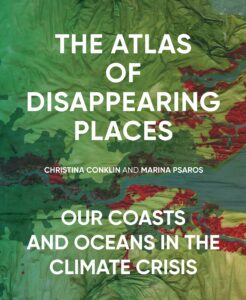
Christina Conklin and Marina Psaros, The Atlas of Disappearing Places: Our Coasts and Oceans in the Climate Crisis
New Press, July 20
This unique atlas project portrays places under threat due to the climate crisis—including New York City, Houston, the Cook Islands, and Shanghai—and maps the ways they will change or disappear, unless the global community acts to stop it. Combining climate science, storytelling, and art, this is an undeniably beautiful approach to an important, and troubling, topic. –from Lit Hub’s Summer Nonfiction Preview

Andrew Palmer, The Bachelor
Hogarth, July 20
This impressive debut is a perfect read for a summer of regrouping. Our narrator, nearly thirty and aimless in the wake of a breakup with his novelist girlfriend, moves back to his hometown of Des Moines and rents his mom’s friend’s house. Instead of writing, as was his plan, he spends his time watching The Bachelor and digging into a biography of John Berryman—that is, when he isn’t looking for love among the (sharp, specific, three-dimensional!) women he knows. The narrator’s compulsive self- and cultural analysis is refreshing rather than tedious; in Millennial Consumer Culture World, we rarely see main characters that consume culture with genuine, reasonable love. It’s a funny, smart, quietly beautiful novel about the search for narrative—in art, in work, in life. –Walker Caplan (in Lit Hub’s Summer Fiction Preview)
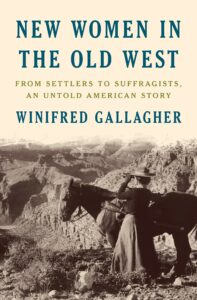
Winifred Gallagher, New Women in the Old West: From Settlers to Suffragists, an Untold American Story
Penguin Press, July 20
In the mid to late 19th century, a wave of white settlers established a constellation of cities in the American West where women could play a more important role in public life than ever before. Winifred Gallagher accounts for this era in history and how the women of the West contributed to the suffragist movement, including those who were further disenfranchised due to their race. –from Lit Hub’s Summer Nonfiction Preview

Omar El Akkad, What Strange Paradise
Knopf, July 20
Perhaps we need a new micro-genre to describe the work of Omar El Akkad, who builds impossibly taut, thriller-like narrative structures around deeply complex moral problems (“moral thriller” might not sell books, but that’s what we’re talking about). In What Strange Paradise—the tale of a Mediterranean migrant journey gone wrong—El Akkad sets his chorus of moral actors adrift (literally and figuratively) on the desperate seas of refugee misfortune and removes the luxury of anything resembling binary certainty. Some of these characters reveal innate goodness, while others display breathtaking indifference to the suffering of others; and yet in El Akkad’s moral universe, no one is judged, and no one is made into a monster.
If anything is definitively monstrous in What Strange Paradise it is the larger dehumanizing systems—those global, tidal forces of money and power—that render individual, moral choice a quaint, fairy tale redundancy. But just when things seem impossibly bleak, amid the ongoing apocalypse of contemporary global displacement, El Akkad allows for the possibility of hope in individual moral choice, reminding us that any given life is simply that, a collection of hard choices, for good or for ill. –Jonny Diamond (in Lit Hub’s Summer Fiction Preview)

Terry Leahy, The Politics of Permaculture
Pluto Press, July 20
Permaculture is an environmentally conscious way of interacting with the land—somewhere between farming and landscaping—that prioritizes natural processes and the health of endemic flora and fauna. Like many eco-forward movements it has largely been the province of those with the land, time, and money to practice it, a problem that Terry Leahy addresses head on in The Politics of Permaculture, which outlines the ways in which permaculture can benefit both the land and people of the global south. This is what we might call intersectional sustainability. –from Lit Hub’s Summer Nonfiction Preview

David Stebenne, Promised Land: How the Rise of the Middle Class Transformed America, 1929-1968
Scribner, July 20
David Stebenne looks at the history of the 20th century from the perspective of the middle class, which thrived throughout the mid-century until the political clashes of the late 1960s interrupted its growth. Promised Land is a valuable close look at a revealing period in the history of class in the US. –from Lit Hub’s Summer Nonfiction Preview

Giles Tremlett, The International Brigades: Fascism, Freedom and the Spanish Civil War
Bloomsbury, July 20
You could say the International Brigades that formed in 1936 to defend the fledgling Spanish Republic against the fascist Loyalists were the first true manifestation of Antifa… As revealed by Giles Tremlett’s full history of the brigades, all manner of socialists, communists, anarchists, freedom fighters, adventure-seekers, and more came from 61 countries to form one of the largest volunteer armies Europe had ever seen. Were they particularly unified? No. Did they have a common enemy? Yes, fascism. Even though it didn’t work, this manifestation of sacrifice and support to a common cause remains one of the more hopeful moments in an otherwise horrifying few decades of war and destruction. –from Lit Hub’s Summer Nonfiction Preview

Ilhan Omar, This Is What America Looks Like: My Journey from Refugee to Congresswoman
Dey Street, July 27
Ilhan Omar’s autobiography follows her path from a childhood in Somalia—and subsequent stay at a Kenyan refugee camp—to adolescence in Arlington, Virginia and growth as an organizer, culminating in her election to Congress. Reading her unique life story is an education in perseverance and the importance, and value, of community in achieving political objectives. –from Lit Hub’s Summer Nonfiction Preview
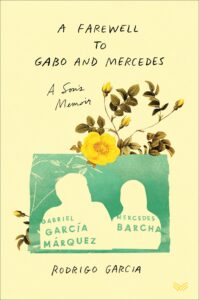
Rodrigo Garcia, A Farewell to Gabo and Mercedes: A Son’s Memoir by Rodrigo Garcia
HarperVia, July 27
The imminence of death can create unlikely intimacies both tender and stark, particularly between a grown child and their aging parent. So it was for Rodrigo Garcia, the son of Gabriel Garcia Marquez, whose richly observed account of the last days of his iconic father is itself a work of fine literary merit. It will always be one of life’s cruel paradoxes that we pay closer to attention to that which we are about to lose, but in doing so in this memoir Rodrigo has gifted his father’s millions of readers a close-up view of one of the 20th century’s great writers. –from Lit Hub’s Summer Nonfiction Preview
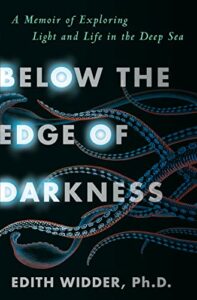
Edith Widder, Below the Edge of Darkness: A Memoir of Exploring Light and Life in the Deep Sea
Random House, July 27
Oceanographer and marine biologist Edith Widder has spent her career studying the wonder of oceanic bioluminescence. Below the Edge of Darkness blends the science of her field with stories of the adventure of deep sea exploration, underscored with the urgency of the need for the conservation of a vast and greatly imperiled ecosystem. –from Lit Hub’s Summer Nonfiction Preview
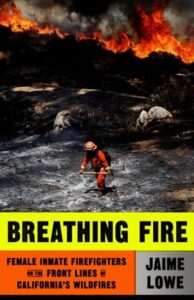
Jaime Lowe, Breathing Fire: Female Inmate Firefighters on the Front Lines of California’s Wildfires
MCD, July 27
Incarcerated firefighters do some of the most dangerous and underpaid work in America. Here, Jaime Lowe, who covered the stories of incarcerated female firefighters for The New York Times Magazine, looks in detail at the fire camp programs where they earn a dollar an hour doing life-threatening work that grows more dire every year as the climate crisis continues. –from Lit Hub’s Summer Nonfiction Preview
